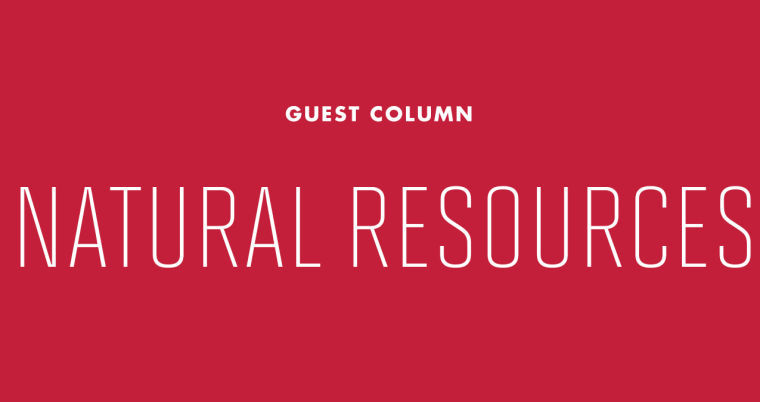
Diminishing natural resources
Natural resources: a fairly ominous conversation starter, along with “the economy,” “homeland security” and “vegetables.” As soon as numbers and statistics about our depleted natural resources start flying, I feel like I’m being chastised for allowing the destruction of the Earth. Here are a few of the most shocking: One-third of the planet’s natural resources base has been consumed in the past three decades; global iron ore demand is set to double to 3.5 billion tons per year by 2030 and, in the United States, about 95 percent of our forests have been used for logging at least once.
Well, those facts are kind of heavy, Marty McFly!
And you know what most of our resources end up becoming when we decide we’re done with them? Trash! According to the Environmental Protection Agency, America produced 251 million tons of trash in 2012, equivalent to 4,798 Titanics. And what happens to that trash? It either sits in a landfill occupying space, seeping into our groundwater and making towns smell really bad, or it is incinerated and releases harmful toxins into our air. Most people think we recycle the majority of our waste, but the EPA states that 32 million tons of plastic waste was generated in the U.S. in 2012, and only 9 percent was recycled.
Well, it’s time to pick up that hoverboard and hop on that train, because we’re going to take the dismal future of environmental catastrophe and put it behind us, as if Doc Brown had a modified Prius instead of a DeLorean!
Because, the thing is, natural resources are finite. But because we interact with resources in our lives in such a complex manner, we cannot simply assess each resource with a countdown to zero. We lack a definitive amount of how much we have left of any particular resource, so we end up overconsuming them. According to a joint study by the World Wildlife Fund, Global Footprint Network and the Zoological Society of London, the global community is using renewable resources at a rate that would take 1.5 Earths to sustain. That means we are using nature’s resources 50 percent faster than it can handle.
And if population growth and consumption trends continue, we will need two planets’ worth of resources to sustain our annual consumption by 2030. Try as they might, NASA has yet to stumble upon a spare Earth floating around.
And unfortunately, global consumption of natural resources is not equally distributed around the world. An annual World Watch Institute report reveals that North America and Western Europe, which are home to just 12 percent of the world’s population, account for 60 percent of the world’s private consumption expenditures. So maybe it makes sense that a lot of the burden to change consumer habits rests on Americans, as we’re some of the biggest contributors to the issue.
Obviously, large corporations have much more control over this issue than the average Joe, but it’s important to realize large-scale change won’t happen all at once, and starting with individual change will get the ball rolling. It’s similar to when you get hit with a seemingly insurmountable workload with exams, homework, applications and papers. Stubbornly refusing to do any of it would be silly; rather, you take it on piece by piece until it’s done. So right now, as individuals, we really ought to make adjustments to our mindsets when it comes to our current rate of natural resource consumption.
So for this one week, stay away from using single-use plastic and paper products, try not to waste any food, make sure to recycle and compost correctly, and if you have to print something, make sure to print double-sided. We all have the power to reduce our impact on this planet we share, and as my taekwondo master used to say, “Leave this place cleaner than you found it, or we’ll be doing 200 knuckle push-ups on the tarmac!” Here’s to you, Master Phil — dire consequences to inaction make environmentalists out of all of us.
Resources Week, the first week of the “What Will YOU(md) Do?” sustainability pledge, kicks off Wednesday and runs through April 1. During this week, choose to bring the issue of diminishing resources into your life and pledge to reduce your consumption. Learn more and take the pledge at www.whatwillyoumddo.org.
Kyle Vaughan is a sophomore government and politics major and a member of the Student Government Association’s sustainability committee. He can be contacted at jettvance@gmail.com.



